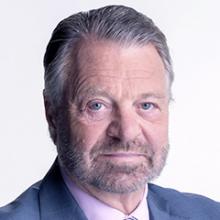You are here
World Cup blues
Jul 07,2014 - Last updated at Jul 07,2014
The conventional wisdom in Latin America is that the combination of economic growth, representative democracy, and middle-class expansion has led the region into a trap, with citizens’ expectations rising faster than governments’ ability to fulfill them.
The frustrated middle classes, together with traditional sectors, stage demonstrations and riots, and vote out unresponsive governments.
But few expected this tide of frustration to threaten Latin America’s most competent president, Colombia’s Juan Manuel Santos, or one of its most revered traditions, Brazilian football.
Santos has governed Colombia boldly and effectively for four years.
He not only ratified a free-trade agreement with the United States and addressed previous governments’ human rights violations; he also stuck to his guns on important reforms, despite large-scale protests by students, teachers, peasants and business owners last year.
While the economy has not grown fast enough to meet the country’s needs, it has performed better than many others in the region.
Most important, Santos staked his political capital on negotiating peace and disarmament with the Revolutionary Armed Forces of Colombia (FARC) — the powerful guerrilla group (often characterised as a “narco-guerrilla” movement) that has been wreaking havoc on the country for four decades.
While some progress had been made since peace talks began in Cuba three years ago, the negotiations were moving along slowly, giving opponents like Álvaro Uribe, Santos’ predecessor, ample time to mobilise public opinion against the talks.
Taking advantage of widespread opposition to amnesty for FARC leaders — a concession that would be an essential component of any deal — Santos’ rivals transformed the first round of the election into a referendum on the negotiations. Santos lost by nearly five percentage points.
Colombians were in a funk, and they took it out on Santos. He recovered by the second round, but won by a much smaller margin than anyone expected six months ago.
Brazilians are in a funk, too, and they are directing their ire against the ruling Workers’ Party, with the ongoing World Cup football tournament and plans for the 2016 Olympics serving as prominent symbols of its leadership.
Following the kickoff of the World Cup earlier this month, President Dilma Rousseff, who will run for re-election in October, began to slide in the polls.
The Workers’ Party presidents — first Luiz Inácio Lula da Silva, then Rousseff — believed that holding the world’s two most important sporting events within a two-year period would mark Brazil’s emergence as a rising world power, serving as a kind of “coming out party”.
And their logic was sound, if a little arrogant; only two other countries — Mexico and Germany — can count a back-to-back World Cup and Olympic Games among their achievements.
But Brazil’s rise was not as secure as its leaders seemed to believe. In 2011, the economy stalled, and output has been stagnating ever since.
The growth of the lower middle class — which had swelled by tens of millions of people in the preceding years — was halted, and consumer debt exploded.
Even soaring commodity prices, bolstered by strong demand from China, became problematic, with the expectation of a terms-of-trade reversal generating significant uncertainty.
Indeed, as GDP growth in China and India has slowed, so have these countries’ purchases of Brazilian primary goods.
Brazilians’ belief that their country was headed towards long-term prosperity has been shattered — and they are taking it out on Rousseff. Last June, a small increase in public-transport fares in São Paulo sparked a wave of protests throughout the country, with citizens incensed over the shoddiness of public services provided by a government that records Latin America’s highest tax take.
Against this backdrop, demonstrators have also decried the government’s decision to spend billions of dollars on World Cup infrastructure, including stadiums, hotels and airports.
A few years ago, a substantial majority of Brazilians supported holding the World Cup in their country.
By last May, the share had declined to half — astoundingly low for some of the world’s most enthusiastic football fans — with small but strident protests persisting across the country.
Rousseff’s opponents want the protests to disrupt the games, damaging Brazil’s international image; some are even hoping for Brazil’s team to lose.
Such an outcome would not be good for the country. Whatever frustration lower-middle-class Brazilians are feeling, a successful World Cup is their best option. Likewise, contrary to the perceptions of Uribe’s supporters, Santos’ reelection and continued pursuit of peace is exactly what Colombia needs right now.
The more citizens understand and support this effort, the better its chances of success.
All of this uncertainty says much about the state of affairs in Brazil and Colombia — and, indeed, in much of Latin America.
Slow growth and high expectations have left the region in a deepening funk, and nobody seems quite sure how to escape it, leaving citizens and leaders alike to wait, watch, and hope.
The writer, former foreign minister of Mexico (2000-2003), is professor of politics and Latin American and Caribbean Studies at New York University. ©Project Syndicate, 2014. www.project-syndicate.org












